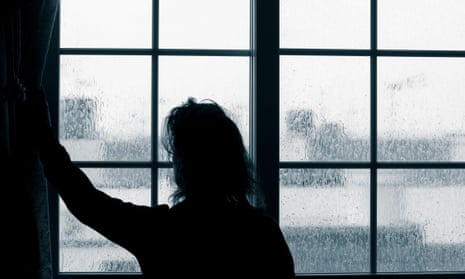Almost 16,000 children in the UK could be exposed to domestic abuse this Christmas, a leading research charity has estimated, calling on ministers to commit to funding specialist support services in the new year.
The tragic cases of Arthur Labinjo-Hughes and Star Hobson, two young children murdered in their homes, have recently cast a spotlight on the risks of domestic abuse to children.
The Early Intervention Foundation (EIF), a charity that advocates effective early intervention to improve the lives of children, said the Christmas period could be particularly stressful for families, which may lead to more domestic abuse.
It is estimated that 3.2% of under-11s and 2.5% of 11- to 17-year-olds are exposed to domestic violence, which EIF said equated to 15,948 over the two-week festive period, which would be a rise from 15,006 the previous Christmas.
The Home Office is expected to publish a domestic abuse strategy in 2022, after the Domestic Abuse Act received royal assent this year.
Dr Jo Casebourne, the chief executive of the EIF, said: “Given the numbers of children affected by domestic abuse, it is vital that we fully understand how best to help them.
“The domestic abuse strategy must focus on improving services for child victims of domestic abuse. There are longstanding gaps in provision for families, including in relation to the availability of prevention services and long-term therapeutic support, support for babies and very young children and culturally specific interventions for minority groups.
“That’s why we are calling on safeguarding minister Rachel Maclean to ensure that the domestic abuse strategy includes a commitment to fund and evaluate the most promising support, in order to build crucial evidence of what works for families affected by domestic abuse.”
Early in December, the case of six-year-old Arthur Labinjo-Hughes shocked the country. The boy was subjected to a sadistic campaign of cruelty by his stepmother and father. He was physically assaulted, poisoned with salt and forced to stand in isolation for up to 14 hours a day in the months leading up to his death.
Emma Tustin, 32, was sentenced to life with a minimum of 29 years for the murder of Arthur, while his father, 29-year-old Thomas Hughes, was given 21 years in prison for manslaughter.
The national Child Safeguarding Practice Review Panel announced it would examine the circumstances leading up to Arthur’s death.
Findings from a report on the death of 16-month-old Star Hobson will also feed into the national review.
Star suffered weeks of “neglect, cruelty and injury” from her mother’s partner, 28-year-old Savannah Brockhill. The toddler died of cardiac arrest after being punched or kicked by Brockhill in September 2020 using “massive force” on a par associated with “a road traffic accident”. Brockhill was jailed for life with a minimum term of 25 years, while Star’s mother, Frankie Smith, was jailed for eight years after she was found guilty of causing or allowing the toddler’s death but cleared of murder and manslaughter charges.
The EIF said children who had experienced domestic abuse were significantly more likely to experience abuse in their own adult relationships, to misuse drugs or alcohol, and to have lower levels of wellbeing.
In a report earlier this year, the charity identified a significant lack of evidence on what support works to effectively help children who have experienced, or who are at risk of experiencing, domestic abuse.
The safeguarding minister, Maclean, said: “Nobody should feel unsafe in their own home and we are determined to ensure all victims of domestic abuse, including children, get the support they need.
“That is why this year we are providing over £3m to specialist services for children experiencing domestic abuse which is enabling a range of therapeutic support and early intervention schemes for children impacted by this devastating crime.
“The new Domestic Abuse Act is fundamentally transforming our response as it recognises children as victims of domestic abuse in their own right and our upcoming domestic abuse strategy will set out our plan to tackle all forms of this crime, including that experienced by children, in due course.”
